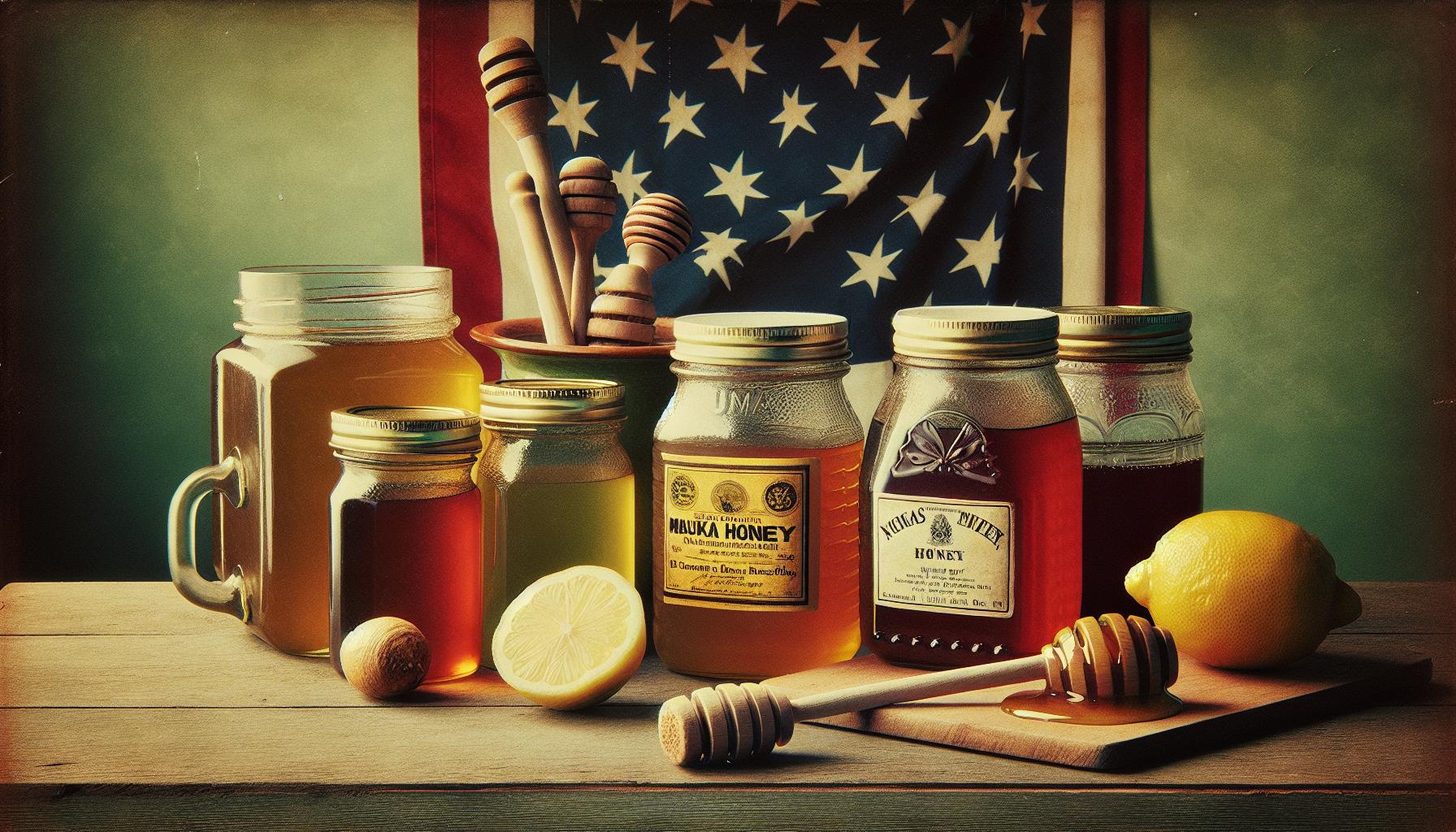Honey has been cherished for centuries as more than just a natural sweetener. Packed with antioxidants, enzymes, and nutrients, honey supports immunity, soothes sore throats, and promotes digestion. However, not all honey is created equal, and finding the healthiest options can be overwhelming.
From raw and organic to specialty varieties like manuka honey, the healthiest honeys prioritize purity and sustainability, offering more than just sweetness—they deliver incredible benefits for overall wellness.
What Makes Honey Healthy?
Honey’s unique health-enhancing properties set it apart from processed sugars and artificial sweeteners.
Nutritional Benefits
- Antioxidants: Honey contains flavonoids and phenolic acids that combat oxidative stress, reducing the risk of chronic diseases.
- Micronutrients: Trace amounts of vitamin B6, calcium, potassium, and magnesium contribute to bone health and metabolic functions.
- Enzymes: Raw honey is rich in enzymes that aid digestion by breaking down carbohydrates, supporting gut health.
Natural Sugars vs. Artificial Sweeteners
Unlike artificial sweeteners like aspartame, honey provides natural sugars (fructose and glucose) that offer sustained energy and a gentler blood sugar response. Honey also delivers nutrients and antioxidants, making it a more healthful alternative to refined sugar or high-fructose corn syrup.
Top Types of Healthy Honey
Different honey varieties cater to unique preferences and health needs.
1. Raw Honey
- Key Benefits: Rich in antioxidants, enzymes, and nutrients, raw honey is unprocessed, retaining its natural properties.
- Uses: Digestive support, wound healing, and immune health.
- Characteristics: Thicker texture, cloudy appearance, nutrient-dense.
2. Manuka Honey
- Key Benefits: Known for its high antibacterial potency due to methylglyoxal (MGO). Supports wound healing, immune defense, and gut health.
- Uses: Skin care, sore throat relief, and therapeutic purposes.
- Region: Sourced from the Manuka tree in New Zealand and Australia.
3. Clover Honey
- Key Benefits: Milder flavor and light floral notes, making it ideal for sweetening tea or cooking.
- Uses: Everyday sweetener for beverages, baked goods, and dressings.
- Characteristics: Light color, widely available.
Criteria for Choosing Healthy Honey
- Purity and Sourcing: Look for honey that is free from additives and sourced from ethical, sustainable beekeepers. Trusted regions like New Zealand produce high-quality honey.
- Organic Certification: Labels like USDA Organic ensure the honey is free from synthetic pesticides, herbicides, and GMOs.
- Minimal Processing: Choose raw or unfiltered honey to retain its natural enzymes, antioxidants, and nutrients. Avoid pasteurized or ultra-filtered varieties.
Top Picks for Healthy Honey
Best for Immune Support
Manuka honey, with its high MGO content and Unique Manuka Factor (UMF) ratings, is perfect for boosting immunity. Examples include Comvita UMF 15+ and Kiva UMF 20+.
Best for Sweetening Tea
Clover honey offers mild sweetness without overpowering flavors, making it ideal for tea. Popular options include Nature Nate’s Raw Clover Honey and Dutch Gold Clover Honey.
Best All-Purpose Option
Raw honey is versatile and nutrient-rich, suitable for spreading on toast, adding to smoothies, or baking. Brands like Y.S. Eco Bee Farms Raw Honey and Really Raw Honey are great choices.
Storing and Using Honey
Storage Tips
- Store honey in a tightly sealed container to prevent moisture absorption.
- Keep it in a cool, dry place away from direct sunlight or heat sources.
- To de-crystallize, place the jar in warm water (below 110°F); avoid microwaving, which damages nutrients.
Creative Uses
- Sweetener: Add to tea, coffee, or smoothies for natural flavor and nutrients.
- Cooking: Use in marinades, dressings, or baking for moisture and sweetness.
- Skin Care: Apply as a hydrating mask or for soothing minor wounds.
- Home Remedies: Mix with lemon water to relieve sore throats and aid digestion.
Conclusion
By understanding the unique benefits and types of honey bees, you can choose a variety that aligns with your health goals. Whether for immunity, sweetening tea, or skincare, high-quality honey remains a timeless and versatile choice for well-being.
Frequently Asked Questions
1. What are the main health benefits of honey?
Honey supports immunity, soothes sore throats, aids digestion, and provides antioxidants and nutrients.
2. Why is raw honey healthier than processed honey?
Raw honey retains its natural enzymes, antioxidants, and nutrients, offering greater health benefits than processed honey.
3. How does honey compare to artificial sweeteners?
Honey provides natural sugars and nutrients, delivering sustained energy and gut-friendly compounds, unlike artificial sweeteners.
4. Which honey is best for boosting immunity?
Manuka honey, with its high MGO levels and UMF ratings, is ideal for immune support.
5. How can I tell if honey is pure?
Look for labels indicating raw, organic, or minimally processed honey without additives or artificial sweeteners.
6. Can honey help with digestive issues?
Yes, honey’s enzymes support digestion, while types like manuka honey offer antimicrobial properties for gut health.
7. What is the best honey for tea?
Clover honey, with its mild flavor, is perfect for sweetening tea.
8. How should I store honey?
Keep honey in a tightly sealed container in a cool, dry place to maintain freshness.
9. What should I do if my honey crystallizes?
Warm the jar in water under 110°F to restore its liquid state.
10. Is organic honey better than regular honey?
Organic honey is free from synthetic pesticides and GMOs, ensuring a cleaner, healthier product.
11. Can honey be used for skin care?
Yes, raw and manuka honey are excellent for wound healing, moisturizing, and soothing skin.
12. Is consuming honey daily safe?
Yes, in moderation, honey provides natural energy and nutrients. Avoid giving it to infants under one year due to botulism risk.
13. How versatile is honey in cooking?
Honey enhances drinks, desserts, marinades, and baked goods, making it a valuable ingredient in the kitchen.



